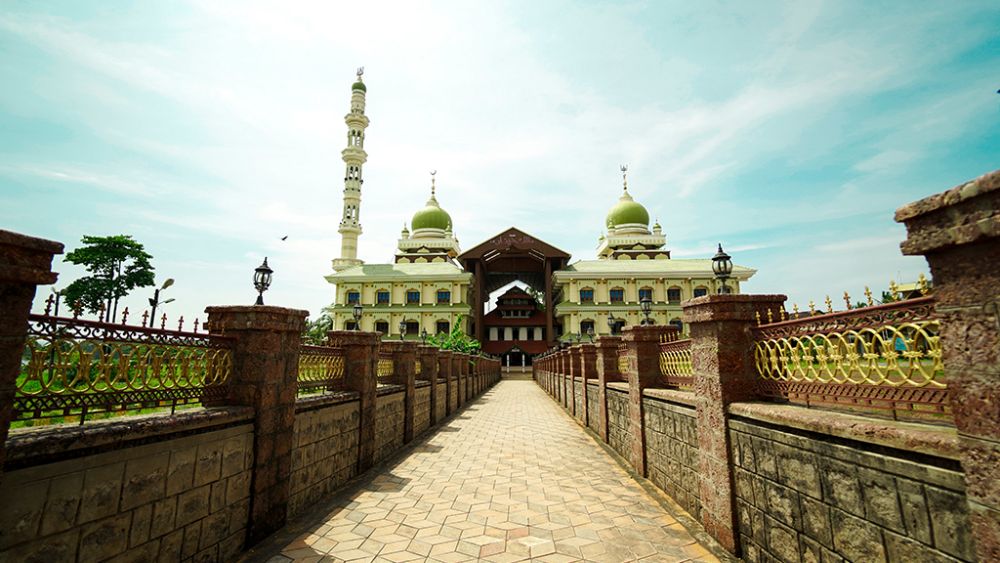

Located in the picturesque state of Kerala, India, the Malik Deenar Mosque is a historical monument that resonates with the spiritual legacy and architectural beauty. Situated in the Kasaragod district, not far from the renowned Bekal Fort, the mosque is one of the oldest in the region and revered as a prominent center for Islamic teachings.
The Malik Deenar Mosque is an epitome of Islamic heritage in India and has a compelling origin story. It is believed to have been founded by Malik Ibn Dinar, a Muslim preacher and a disciple of the Islamic prophet Muhammad. Malik Ibn Dinar arrived in Kerala during the 7th century to propagate Islam along the Malabar Coast. The mosque serves as a marker of the Islamic faith penetrating into the Indian subcontinent, signifying a peaceful assimilation of different religions and cultures.
The architecture of Malik Deenar Mosque is a stunning representation of traditional Kerala style infused with Islamic elements. The mosque has been renovated numerous times over the centuries, yet it retains its original charm and tranquility. Beautiful carvings, a wood-dominated structure, and an imposing edifice make it an attractive spot for tourists and devotees alike.
Tourism at Malik Deenar Mosque began to flourish with the increase in awareness about Kerala's diverse cultural landscape. Visitors are drawn to the region's unique intermingling of natural beauty and historical monuments. The development of Bekal as a tourist hub, with the nearby Bekal Fort gaining prominence, also played a significant role in putting the mosque on the tourist map.
The mosque is not only significant for its historical and architectural value but also serves as a vital religious site. An annual Uroos festival, which marks the anniversary of Malik Ibn Dinar's death, attracts thousands of devotees, from various religious backgrounds, who gather to commemorate the saint's life work. This event has also become a part of the tourism calendar, inviting visitors to experience the syncretic culture of Kerala.
In recent times, the concept of spiritual tourism has seen a rise in Kerala, with the Malik Deenar Mosque standing as a testament to the state's religious harmony. Eco-tourism and cultural tours often include the mosque as part of the itinerary, allowing tourists to explore the religious spectrum along with the natural and historical sites. Kerala’s initiative in promoting 'Responsible Tourism' ensures that visits to cultural landmarks like the Malik Deenar Mosque are sustainable and beneficial to the local community.
The mosque is open to visitors throughout the year, although non-Muslims may have restricted access to certain areas. The best time to visit is during the cooler months from September to March. It is advisable to dress modestly when visiting the mosque. Photography may be allowed in some areas, but it is best to seek permission first. Tourists can also visit the mosque to witness the beautiful sunset on Thalangara beach, which is just a stone's throw away.
Malik Deenar Mosque remains an integral component of the cultural and spiritual itinerary for anyone visiting Bekal in Kerala, offering insight into the region's rich history and a vibrant tapestry of communal harmony.